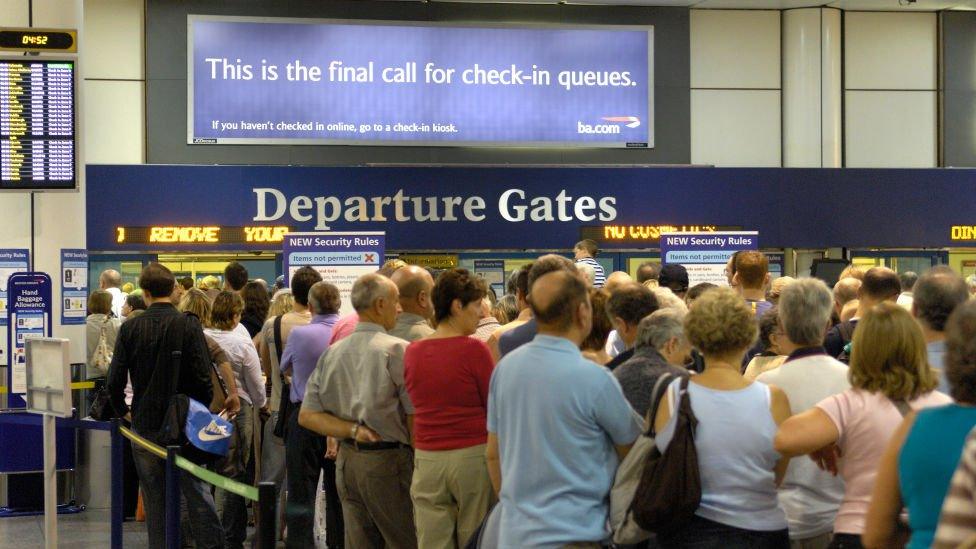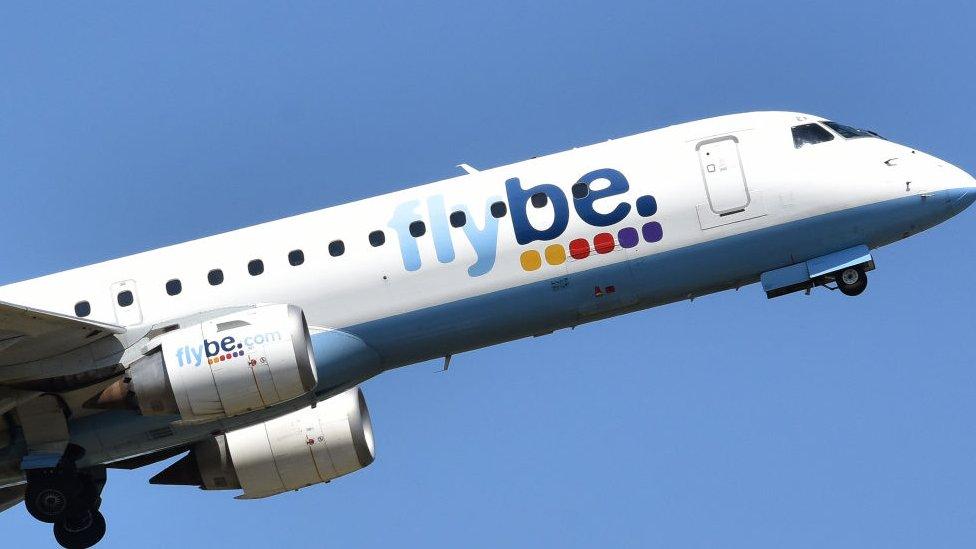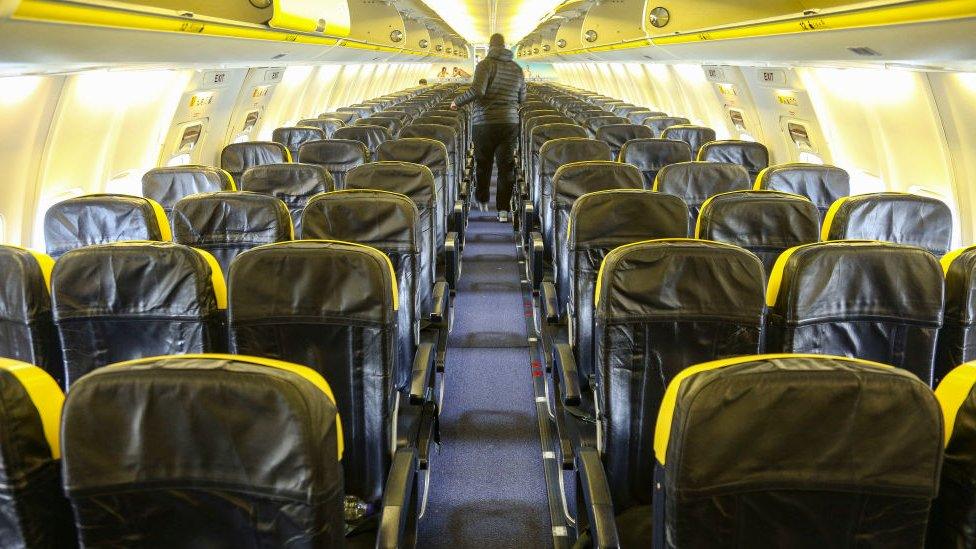Brexit: What would 'no deal' mean for aviation?
- Published

If the UK leaves the EU without any withdrawal agreement, EU rules and regulations will, very abruptly, stop applying to the UK after 29 March next year. So what would that mean in terms of planes being able to take off and land?
Well, the UK would no longer be part of the EU's single aviation market, which is the basis for flights in and out of the country at the moment, not just to the EU itself, but to other countries with which the EU has a deal - such as the United States and Canada.
In all, the EU governs direct UK aviation access to 44 other countries.
Of course, you can always negotiate new agreements, but access would start at a pretty low level and negotiations take time.
That's why a sudden no-deal scenario is so alarming to the industry, a point that was recognised back in October 2017 by Chancellor Philip Hammond.
"It is theoretically conceivable in a no-deal scenario that there will be no air traffic moving between the UK and EU on 29 March 2019," he said.
"But I don't think anybody seriously believes that is where we will get to."
As always, the devil would be in the detail.

FlyBe says it hopes "common sense will prevail" in the Brexit negotiations
The UK would no longer be governed by the regulations of the European Aviation Safety Agency, which deal with all sorts of things like maintenance and common standards.
The UK Civil Aviation Authority could, in theory, take on all the same rules, and hire lots of new staff to implement and oversee them, but it would also have to convince other international regulators to recognise it - another time-consuming process.
And if you're following EU aviation rules in full, you basically have to accept a role for EU courts like the European Court of Justice as well.
Of course, plenty of "third countries" have their own separate deals with the EU and given time, the UK could do the same. But we keep coming back to that ticking clock.
'Ultimate worry'
All of which makes it difficult for airlines that are already selling tickets for flights after Brexit.
"Right now we will continue to sell in the hope and belief that when a conclusion comes to the Brexit scenario, common sense will prevail and people will realise the need for intra-Europe travel," said Roy Kinnear, the chief commercial officer of FlyBe.
"The biggest fear has to be if at the eleventh hour and fifty-ninth minute there is a complete cessation and breakdown, and a shutdown of air travel between the UK and Europe. That is the ultimate worry."

RyanAir will soon add a "Brexit clause" to any tickets sold for travel after 29 March
And airlines, just like many other industries, are having to make contingency plans to prepare for the worst.
From September, when many people will start booking Easter and summer holidays in 2019, RyanAir will add a "Brexit clause" to all tickets sold for travel after 29 March .
It will warn customers that their tickets may not be valid if aviation regulation is disrupted in the event of "no deal".
If flights don't take place, the cost would be refunded.
In a statement, RyanAir said it hoped a 21-month transition agreement after Brexit would be implemented as part of a withdrawal agreement, to give airlines more time to prepare for a transition to a new relationship.
But it said: "We believe that the risk of a hard (no-deal) Brexit is being underestimated."
IAG, the parent company of British Airways, was unable to confirm whether BA was planning to introduce similar measures to those being implemented by RyanAir.
Instead, an IAG statement said: "we are confident that a comprehensive air transport agreement between the EU and UK will be reached."
Chris Morris from BBC Reality Check
One of the reasons for the continuing uncertainty is the nature of the aviation industry.
In other areas of the UK's trade relationship, if it leaves with no deal, it will fall back on the basic rules of the World Trade Organization.
But in aviation, there is no fall-back position. Either you have a deal or you don't.
So if negotiations with the EU fail, and neither side wants that to happen, there would have to be a scramble for an interim solution to keep planes in the air.
The most obvious one would be some kind of stopgap agreement to roll over current rules for a short time.
But that would mean the UK's current commitments to the EU - such as legal and budget commitments - would have to continue as well. It would be extended membership in all but name.
Project Complexity?
It is worth emphasising that it would be in no-one's interest to ground aircraft. Everyone would be looking for a fix.
Again, this is a point that was emphasised by Philip Hammond.
"It's very clear," he said, "that mutual self-interest means that even if talks break down, even if there is no deal, there will be a very strong compulsion on both sides to reach agreement on an air traffic services arrangement."
But the suggestion that everything would automatically be fine for aviation in the event of no deal is highly misleading.
A deal would need to be done, to deal with the consequences of "no deal".
And this isn't about Project Fear - this is Project Complexity.


